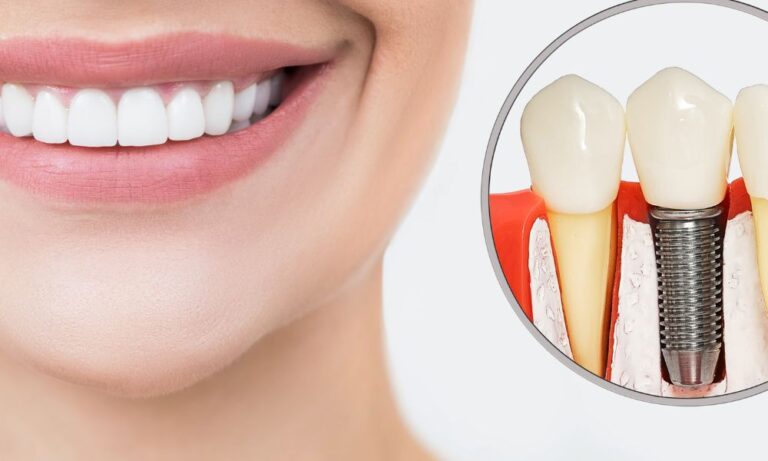Diabetes and periodontal disease are two prevalent health issues that can have significant impacts on an individual’s overall well-being. What many people may not be aware of is the strong connection between the two conditions. For individuals living with diabetes, it is crucial to understand this link and take necessary precautions to maintain optimal gum health. At Colorado Gum Care Broomfield, CO, our dental professionals are committed to helping diabetic patients navigate the challenges of managing their gum health and maintaining a radiant smile.
In this article, we will delve into the connection between periodontal disease and diabetes, highlighting the importance of proactive gum care for diabetic individuals. Furthermore, our caring dental experts at Colorado Gum Care Broomfield, CO will provide valuable advice on managing gum health alongside diabetes, ensuring that you can maintain a beautiful smile while effectively controlling your blood sugar levels. As you learn about this vital relationship, you’ll be better equipped to safeguard your gum health and improve your overall quality of life.
Understanding the Connection Between Periodontal Disease and Diabetes
The relationship between diabetes and periodontal disease is bidirectional, meaning that each condition can influence the other. Research has shown that individuals with uncontrolled diabetes are at a higher risk for developing gum disease, and vice versa, periodontal disease can make it more difficult to control blood sugar levels (source: https://www.ncbi.nlm.nih.gov/pmc/articles/PMC3084574/). The primary reason behind this connection lies in the body’s inflammatory response and the impact of high blood sugar on gum tissue.
Inflammation plays a crucial role in the development of periodontal disease in diabetic individuals. Due to elevated blood sugar levels, people with diabetes tend to have a heightened inflammatory response that can exacerbate gum inflammation, leading to a greater vulnerability to infections and gum disease. Additionally, diabetes can adversely affect blood circulation, impairing the delivery of oxygen and nutrients to the gum tissue and hindering the immune system’s ability to fight off infections.
Preventive Measures for Diabetics to Maintain Gum Health
1. Prioritize Blood Sugar Control
Effectively controlling blood sugar levels is a central element in maintaining optimal gum health for diabetic individuals. By keeping your diabetes under control, you can reduce your risk of developing periodontal disease and prevent related complications. Follow your healthcare provider’s recommendations regarding insulin administration, oral medications, diet, and exercise to help stabilize your blood sugar.
2. Establish a Consistent Oral Hygiene Routine
Proper oral care is essential for everyone, but it’s even more critical for diabetics to develop a consistent oral hygiene routine as they are more susceptible to gum complications. Brush your teeth at least twice a day with a soft-bristle toothbrush and fluoride toothpaste. Floss daily to remove plaque and debris between your teeth, and consider using an antimicrobial mouthwash to help further combat harmful bacteria in your mouth.
3. Schedule Regular Dental Examinations
Regular dental checkups are essential for early detection and timely intervention against periodontal disease. Schedule appointments with your dentist at Colorado Gum Care Broomfield, CO at least every six months or more frequently as recommended by your dental professional. During these visits, dental professionals will monitor your gum health, perform cleanings, and address any areas of concern.
4. Cease Smoking and Avoid Tobacco Products
Smoking and tobacco use can significantly increase your risk for developing gum disease. By quitting smoking and avoiding tobacco products, you can improve your overall oral health and significantly reduce the likelihood of periodontal disease. Reach out to your healthcare provider for support and resources for quitting smoking.
5. Strengthen Your Immune System
A strong immune system can help prevent gum infections and promote overall oral health. Incorporate a healthy diet full of vitamins, minerals, and antioxidants into your daily routine, engage in regular physical activity, and manage stress effectively to bolster your immune system and support good gum health.
Warning Signs of Periodontal Disease for Diabetics
Early detection of periodontal disease is essential for preventing further damage and improving treatment outcomes. Diabetic individuals should be vigilant for the following signs that could indicate the onset of gum disease:
– Swollen, red, or tender gums
– Bleeding gums during brushing or flossing
– Receding gum line
– Persistent bad breath or a bad taste in the mouth
– Pus between your teeth and gums
– Loose or shifting teeth
If you notice any of these warning signs, schedule an appointment with your dentist at Colorado Gum Care Broomfield, CO immediately for a thorough evaluation and professional care.
Treating Periodontal Disease in Diabetic Patients
The treatment approach for periodontal disease in diabetic patients typically involves a combination of professional dental care and at-home preventive measures. Treatment options can vary depending on the severity of gum disease and may include:
1. Nonsurgical Treatments
– Dental cleanings: Regular dental cleanings can help prevent and manage mild gum disease in diabetic patients.
– Scaling and root planing: This deep-cleaning procedure involves removing plaque and tartar from below the gum line and smoothing the root surfaces to help the gums reattach to the teeth.
2. Surgical Treatments
– Gingivectomy: This procedure involves the removal of excess gum tissue to eliminate pockets that harbor bacteria.
– Flap surgery: Also known as pocket reduction surgery, this treatment aims to clean the root surfaces and reduce pocket depths, promoting gum reattachment to the teeth.
– Bone and tissue grafts: Grafts may be necessary to regenerate damaged bone and gum tissue resulting from severe periodontal disease.
3. Adjunctive Therapies
– Antibiotics: Antibiotic therapy can help control infection and reduce inflammation in the gums.
– Laser therapy: A minimally invasive procedure that can effectively remove harmful bacteria and promote gum tissue regeneration.
By following expert guidance from the dental professionals at Colorado Gum Care Broomfield, CO, diabetic individuals can effectively manage their gum health and minimize the risk of periodontal disease complications. Focusing on blood sugar control, a consistent oral hygiene routine, and regular dental checkups can ensure a beautiful smile and enhanced overall health.
Take Control of Your Gum Health with Diabetes at Colorado Gum Care Broomfield, CO
In conclusion, managing gum health as a diabetic requires a multifaceted approach. By prioritizing blood sugar control, maintaining a consistent oral hygiene routine, scheduling regular dental check-ups, and adopting a healthy lifestyle, you can effectively minimize the risk of periodontal disease complications. The experienced dental professionals at Colorado Gum Care Broomfield, CO, are committed to providing compassionate care and expert guidance to help diabetic patients navigate the challenges of managing gum health. Don’t let diabetes compromise your smile; take the first step towards safeguarding your oral health and overall well-being. Contact Colorado Gum Care Broomfield, CO, today to schedule a consultation and receive personalized advice on managing gum health in tandem with diabetes only from a professional periodontist in Broomfield, CO, ensuring a lifetime of radiant smiles and enhanced quality of life.







